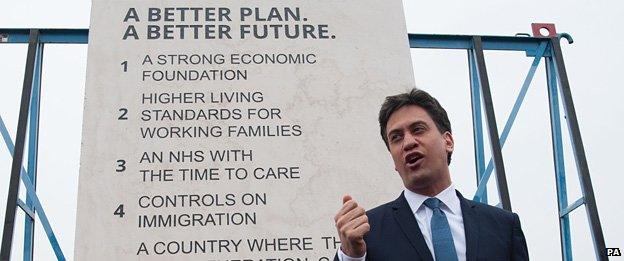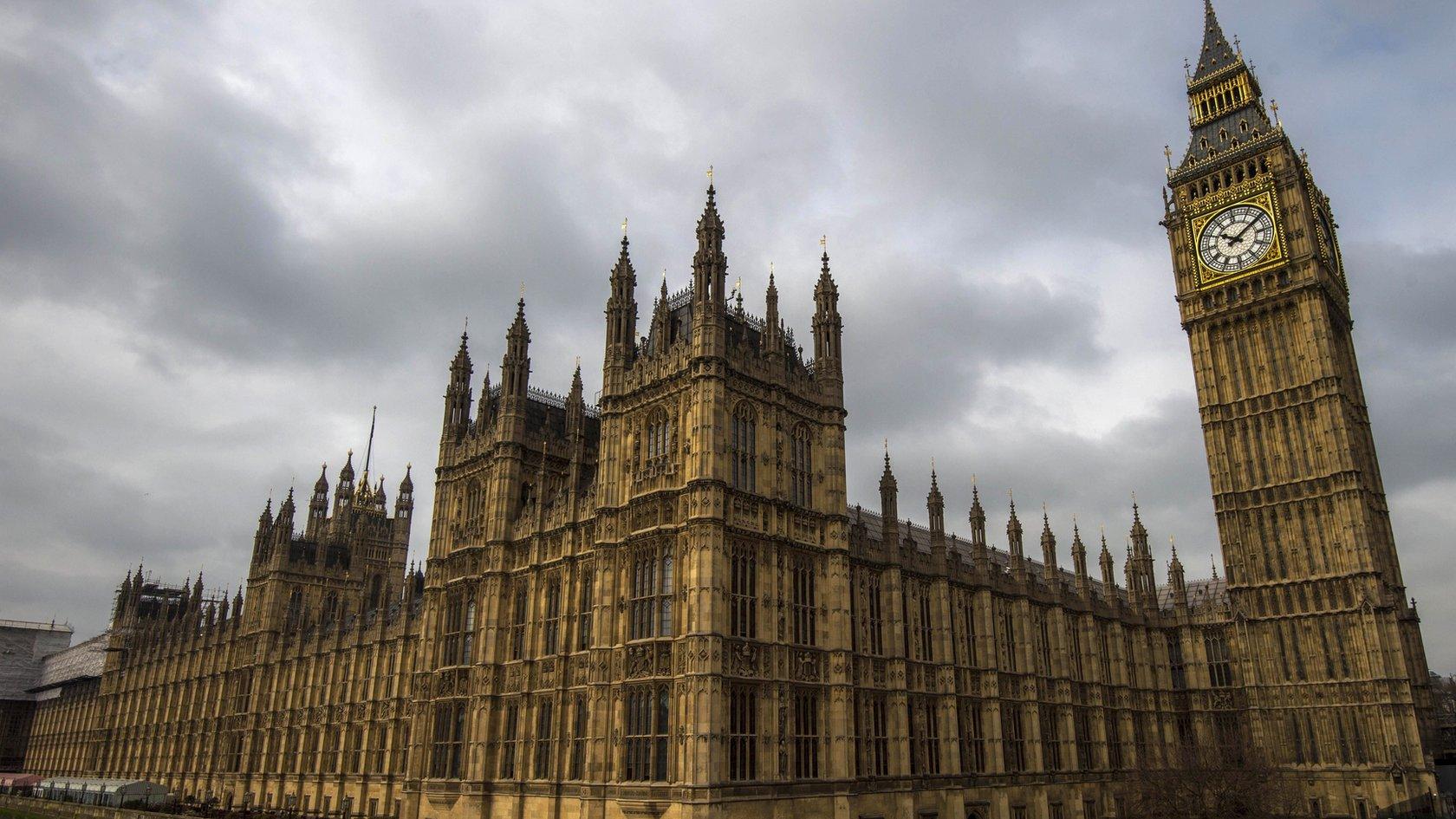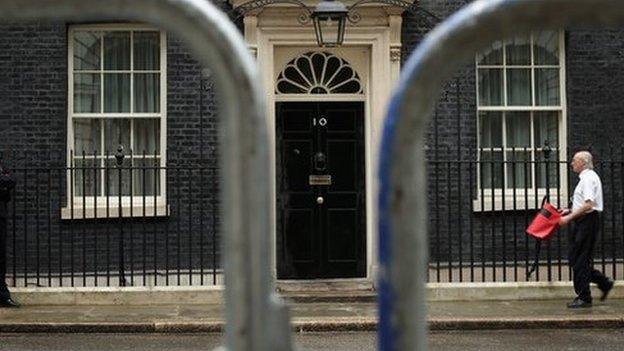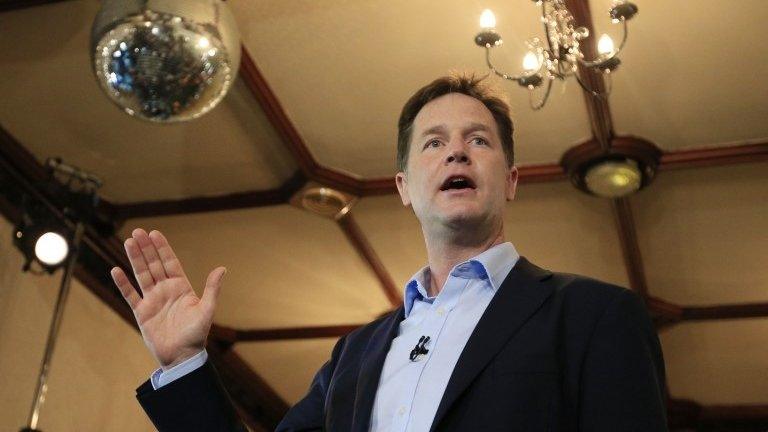Election 2015: I will cut tuition fees or quit, says Miliband
- Published
Ed Miliband: "I will cut tuition fees from £9,000 to £6,000"
Ed Miliband has pledged to cut tuition fees in England from £9,000 to £6,000 by 2020 if he wins power - and pledged not to seek re-election if he failed.
He accused the Conservatives of planning to raise fees to £11,500 and said David Cameron and Nick Clegg had damaged trust in political leaders.
Commons Leader William Hague said his party had not ruled out an increase but dismissed "scare stories" from Labour.
Party leaders are out campaigning on the final weekend before polling day.
Labour's manifesto pledges have been carved into an 8ft (2.4m) monument which Mr Miliband said he would install in the garden of 10 Downing Street if elected, "so you can remind me of them, point to them, insist on them".
'Extremely misleading'
He said while Nick Clegg had "betrayed" a promise to oppose any increase in tuition fees once he entered coalition government. He said Mr Clegg and Mr Cameron were guilty of "promising things they can't pay for and have no intention of delivering".
In a speech to supporters in the West Midlands, he said: "I won't break my word as Nick Clegg did. If I had done what he did five years ago, I don't think I could ask you for your trust again. I will cut tuition fees from £9,000 to £6,000.
"And I tell you this, if I fail in this task, I won't be standing here again in 2020 making more promises. I won't be standing for the office of prime minister at all. Because there should be consequences when people's trust is let down."
Labour says Conservative plans for spending cuts suggest a rise in tuition fees up to £11,500 a year, based on a £1.5bn cut to the higher education budget by 2018-19.


Analysis: Iain Watson, political correspondent
So Ed Miliband won't stand again for election if he fails to cut tuition fees in England. That was his promise today in Worcester.
But is it any more than a stunt aimed at embarrassing Nick Clegg? Well, he has etched all six of his election pledges on to a tablet of stone to be erected in the Downing Street garden if he becomes prime minister.
Very few of his staff would own up to having anything to do with it - though it is being dubbed not the "Ed stone" internally but the "Torstone" in honour of his policy adviser Torsten Bell.
Labour say the serious point is that a symbol such as the stone is necessary to restore faith and trust in politics - to emphasise he really would deliver on promises. The slight snag in the argument is that some pledges are more equal than others. Ed Miliband wants to be held to account but his offer to stand down is specific to tuition fees.
If Labour does fail on its other pledges - for example on eliminating the current deficit - he would still stand again on his record, not stand aside.

Conservative Commons Leader William Hague told BBC One's Sunday Politics that his party had not "specified the future level of university fees" but said Labour's "scare stories" were "extremely misleading".
Asked if they had ruled out rises, he said: "We haven't ruled that out, but scare stories about what may happen to such fees are really, as I say, just designed to scare people ahead of the election.
"We will continue to act in the interests of universities prospering and of a record number of students going to university, which is what we have achieved against all predictions and forecasts over the last five years."
Mr Clegg has apologised for breaking his party's pledge to oppose increasing university tuition fees in England - but has argued that the package offered by the coalition was fairer for students than the previous system of university finance.
On Sunday Mr Clegg dismissed claims by former No 10 adviser James O'Shaughnessy, external that he had actually been keen for an increase in tuition fees, telling the BBC: "I don't even know who this chap is and he certainly wasn't in the room, I tell you."
He mocked Mr Miliband's stone tablet, telling Lib Dem activists in Bermondsey, south London there was "nothing attractive about the instability of a hapless Labour minority administration, regardless of these great gravestones they are apparently going to erect".
- Published30 April 2015

- Published4 May 2015

- Published1 May 2015
